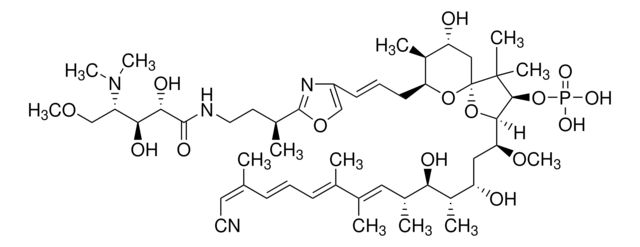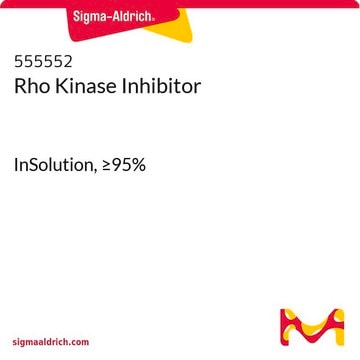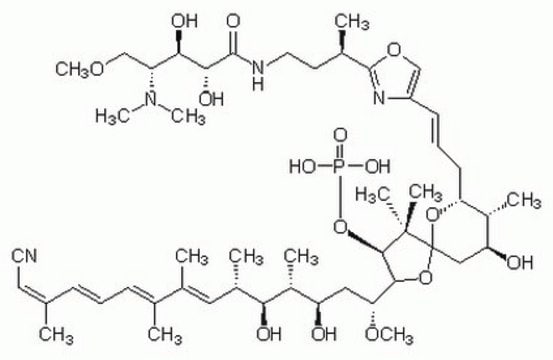555553
Rho Kinase Inhibitor III, Rockout
The Rho Kinase Inhibitor III, Rockout, also referenced under CAS 7272-84-6, controls the biological activity of Rho Kinase. This small molecule/inhibitor is primarily used for Phosphorylation & Dephosphorylation applications.
Synonyme(s) :
Rho Kinase Inhibitor III, Rockout, 3-(4-Pyridyl)-1H-indole
About This Item
Produits recommandés
Niveau de qualité
Pureté
≥98% (HPLC)
Forme
solid
Fabricant/nom de marque
Calbiochem®
Conditions de stockage
OK to freeze
protect from light
Couleur
yellow
Solubilité
DMSO: 25 mg/mL
methanol: soluble
Conditions d'expédition
ambient
Température de stockage
2-8°C
InChI
1S/C13H10N2/c1-2-4-13-11(3-1)12(9-15-13)10-5-7-14-8-6-10/h1-9,15H
Clé InChI
LLJRXVHJOJRCSM-UHFFFAOYSA-N
Description générale
Actions biochimiques/physiologiques
ROCK
Conditionnement
Avertissement
Reconstitution
Autres remarques
Informations légales
Code de la classe de stockage
11 - Combustible Solids
Classe de danger pour l'eau (WGK)
WGK 1
Certificats d'analyse (COA)
Recherchez un Certificats d'analyse (COA) en saisissant le numéro de lot du produit. Les numéros de lot figurent sur l'étiquette du produit après les mots "Lot" ou "Batch".
Déjà en possession de ce produit ?
Retrouvez la documentation relative aux produits que vous avez récemment achetés dans la Bibliothèque de documents.
Notre équipe de scientifiques dispose d'une expérience dans tous les secteurs de la recherche, notamment en sciences de la vie, science des matériaux, synthèse chimique, chromatographie, analyse et dans de nombreux autres domaines..
Contacter notre Service technique







